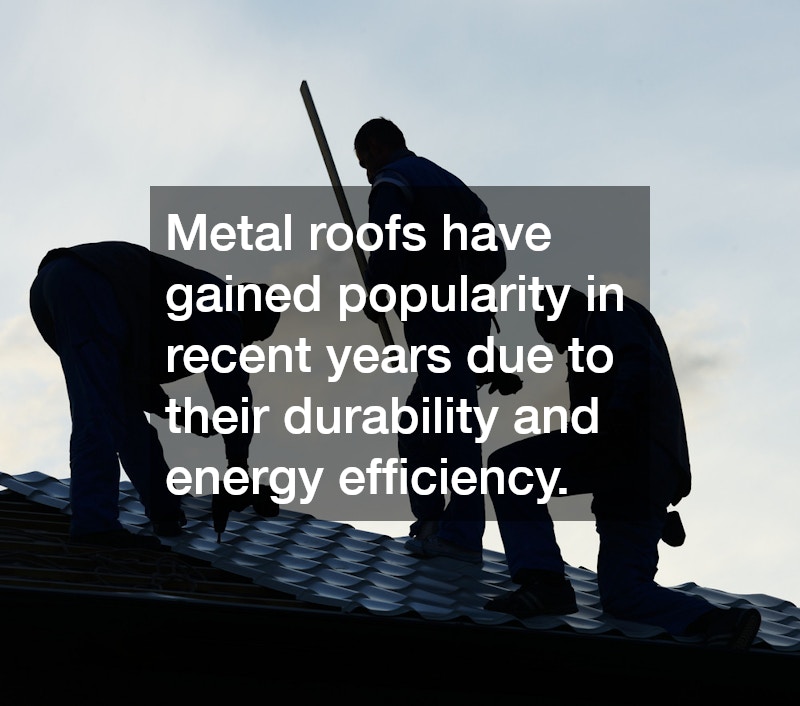

In the world of home construction, roofing plays a crucial role in providing both protection and aesthetics. Homeowners often seek out a reliable roofing service when considering renovations or repairs. This article delves into the various common residential roof types and explores how each is built to withstand environmental challenges while complementing the home’s architectural style.
Choosing the right roof type requires understanding the basic characteristics and benefits of each option available in the market. Different roof types cater to diverse needs, ranging from climate conditions to aesthetic preferences. By understanding how these roofs are built, homeowners can make informed decisions when working with a roofing service for installations or repairs.
From the traditional asphalt shingles to the more eco-friendly green roofs, each roof type has its unique features and building methods. The roofing materials used and the techniques employed in construction affect not only the durability but also the energy efficiency of a home. Let’s explore these varieties to understand what makes each roof type unique and desirable.
Asphalt Shingle Roofs
Asphalt shingle roofs are one of the most popular choices for residential homes due to their affordability and ease of installation. Comprising individual shingles made from fiberglass or organic mat coated with asphalt, they provide a protective, water-resistant layer. A professional roofing service can typically install these roofs quickly, which is a significant advantage for homeowners looking for efficient installation.
The construction of asphalt shingle roofs involves laying down an underlying layer called the underlayment, which acts as a moisture barrier. Subsequently, overlap each shingle in a specific pattern to ensure maximum protection against water penetration. This type of roof is particularly favored in areas where weather conditions are not extreme, offering a balance between cost and functionality.
One distinct advantage of asphalt shingle roofs is the vast array of styles and colors available, allowing homeowners to match the roof with their home’s exterior. Despite being cost-effective, these roofs offer decent durability with an average lifespan of 20 to 25 years. Routine maintenance by a skilled roofing service can enhance their longevity and performance significantly.
Metal Roofs
Metal roofs have gained popularity in recent years due to their durability and energy efficiency. They are constructed from panels or tiles made of metals like steel, aluminum, or copper, offering exceptional resistance to harsh weather conditions. Installing a metal roof requires precision and expertise, making it essential to enlist the services of a reputable roofing service.
The installation process includes securing large metal panels over a series of battens or directly onto the roof deck. A key feature of metal roofs is their interlocking seam design, which provides superior protection against water leaks. Their reflective surfaces help in reducing cooling costs, an attractive feature for eco-conscious homeowners seeking to lower their energy consumption.
Moreover, metal roofs can last up to 50 years or more, making them a long-term investment compared to other roof types. Their ability to withstand wind, fire, and insect damage positions them as a secure choice for homeowners in volatile climates. Partnering with an experienced roofing service for installation ensures the roof is tailored to the specific needs of the home and maximizes its numerous benefits.
Tile Roofs
Tile roofs, often associated with Mediterranean and Spanish-style homes, boast an elegant aesthetic combined with robust durability. Clay and concrete are the predominant materials used, known for their ability to endure changing weather patterns. The weight and design complexity of tile roofs typically necessitate the engagement of a specialized roofing service for successful installation.
Building a tile roof involves setting up a solid underlayment before meticulously laying individual tiles in an overlapping pattern. Although heavier than most other materials, tiles provide an inherent thermal mass, aiding in the regulation of indoor temperatures by offering excellent insulation. Due to the nature of their construction, tile roofs offer great resistance to fire and harsh weather, making them a desirable choice for regions prone to such conditions.
The longevity of tile roofs is one of their most significant advantages, with a lifespan that can exceed 100 years with proper maintenance. Their classic appearance and ability to add value to a home make them a valuable addition. Homeowners looking to install tile roofs should consult a roofing service skilled in handling the intricacies of tile placement to ensure a seamless and durable finish.
Green Roofs
Green roofs represent a modern approach to roofing, incorporating nature into urban settings to offer ecological benefits. Constructed with layers inclusive of a waterproof membrane, root barrier, and growing medium, they support plant life on rooftops. Engaging a proficient roofing service is crucial for installing green roofs, considering the complexities involved in their establishment and maintenance.
The build process starts with installing a waterproof layer to protect the roof structure, followed by a layer that prevents roots from penetrating roofing materials. Successive layers support the growth of vegetation, which not only enhances aesthetic appeal but also provides thermal insulation and mitigates stormwater runoff. Green roofs thus serve a dual function, offering environmental advantages while extending the life of the roofing structure beneath.
While initially more expensive than traditional roofs, green roofs offer substantial long-term savings through energy efficiency and increased roof lifespan. The aesthetic and ecological wonders of green roofs have spurred interest among environmentally aware homeowners. To achieve the best outcomes, however, partnering with a knowledgeable roofing service can ensure not only a successful installation but also guide on ongoing roof management and care.
Residential roofs come in various forms, each type having its own set of benefits and construction methodologies. Choosing the right roofing solution depends on multiple factors, including climate, budget, and personal preferences. Collaborating with an expert roofing service ensures that your choice meets both your practical needs and aesthetic ambitions, thereby enhancing your home’s value and comfort.
From asphalt shingles to ecologically friendly green roofs, homeowners have a range of options when considering a new roof. Understanding the characteristics and construction techniques of each roof type helps in making informed decisions. Investing in a good roofing service ensures your roof is constructed with precision, offering peace of mind and long-lasting protection.
As housing trends evolve, innovative roofing types like green roofs increasingly appeal to environmentally conscious homeowners. Irrespective of the type chosen, a well-executed roof installation drastically enhances home value and ensures adequate protection from environmental elements. Always rely on verified roofing professionals to guarantee that this critical home component stands the test of time.


